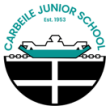

INTENT:
French lessons aim to foster children’s curiosity, deepen their understanding of the French language and culture, and encourage new ways of thinking. Practical opportunities are provided for the pupils to communicate in French, both through speaking and writing, with increasing confidence, fluency and spontaneity.
IMPLEMENTATION:
- All lessons are planned using skills progressions so that knowledge is taught horizontally across the year group, skills are progressed vertically across the key stage, resulting in diagonal learning.
- French lessons are implemented using interactive teaching units from Rising Stars – Eurostars.
- Lessons are delivered using animations, photo stories, word-bank flashcards, games, songs and rhymes.
- Pupils are given balanced opportunities to speak and write in French and accurate pronunciation is encouraged through listening to native French speakers.
- We use our ‘total recall’ time at the start of topic and French lessons to develop the children’s long-term memory on specific French KIRFs (Key Instant Recall Facts).
IMPACT:
By the end of key stage 2, every pupil at Carbeile Junior School has a balanced understanding of the spoken and written French language and positive foundations are laid for further foreign language teaching at key stage 3.
‘French lessons are fun because you get to learn something new, play games and act!’ Tyler Year 4
‘I love French. It is useful because I am going to France in the summer holidays and I’m going to say some of the things I’ve learnt in my lessons,’ Ruben Year 4
Maths Intent, Implementation and Impact
![]() French – Intent, Implementation and Impact
French – Intent, Implementation and Impact
How are French lessons taught at Carbeile?
French is taught as a weekly 15 minute session using the Euro Stars Interactive French Scheme. The lessons are fun, motivating and effective – children learn accurate pronunciation from activities, games and songs all voiced by native French speakers. These are the topics covered throughout the year:
Year 3
1. La classe (Classroom instructions)
2. Jeux et chansons (Games and songs)
3. On fait la fête (Celebrations)
4. Portraits (Portraits)
5. Les quatre amis (The four friends)
6. Ça pousse! (Growing things)
Year 4
1. On y va (All aboard)
2. L’argent de poche (Pocket money)
3. Raconte-moi une histoire! (Tell me a story)
4. Vive le sport! (Our sporting lives)
5. Le Carnaval des Animaux (The Carnival of Animals)
6. Quel temps fait-il? (What’s the weather like?)
Year 5
1. Bon appétit, bonne santé (Healthy eating)
2. Je suis le musiciane (I am the music man)
3. En route pour l’école (On the way to school)
4. Scène de plage (Beach scene)
5. Le retour du printemps (The return of spring)
6. Les planètes (The planets)
Year 6
1. Notre école (Our school)
2. Notre monde (The world about us)
3. Le passé et le present (Then and now)
4. Monter un café (Setting up a café)
5. Quoi de neuf? (What’s in the news?)
Oracy
Children are given opportunity in every French lesson to practise speaking in French and listening to the French language. They regularly listen and sing along to French songs and play games to embed the language.
Home Learning
There could be an element of French within your child’s topic home learning tasks, which are set every half term.
Knowledge Facts
Key Instant Recall Facts. These are closely aligned with the curriculum, with specific half-termly targets for each year group. We expect the majority of children within a year group to be working towards these targets. Children are expected to practise these key phrases frequently. If your child is struggling to recall facts, please concentrate on a smaller number and practise more frequently.
The French Co-ordinator
Grant Walker is the French co-ordinator and oversees the teaching and learning of French at Carbeile.
